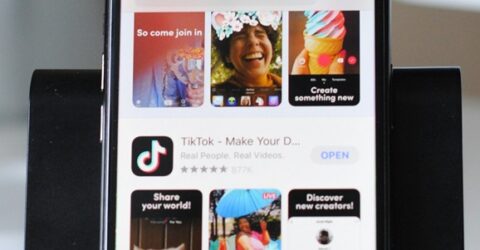Social media algorithms can literally change your mind
Social media algorithms may be designed to reinforce existing beliefs, but they’re also rewiring our brains without us realising

It’s fair to say there is a growing swell of dissatisfaction with social media.
The news is filled with pushback; Australia planning to ban social media for under-16s, the makers of Barbie launching a dumbphone; schools in England banning phones anywhere on campus.
Numerous national and international studies have drawn direct links between social media over-exposure and depression, loneliness, anxiety, self-harm…the list goes on.
But how has something presented as a liberating force ended up causing so much anguish and unhappiness?
And should we be worried about the neurological effects over-exposure to social media algorithms might be having on our brains?
Guinea foul
Over the last 15 years, we’ve all been guinea pigs in a mass global experiment – dropped into a world of always-on digital communications with very little preparation or training.
The smartphone revolution has been positive in many ways.
Most people would agree biometric online banking logins simplify personal finance, Google is a valuable resource and messaging apps have transformed communication.
Yet it’s hard to dispute that trolling, cyberbullying, deepfakes and cancel culture would fade out of existence without the oxygen of social media platforms.
As a result of their malign presence, many children are growing up more isolated, lonely, frightened and insecure than ever before.
Many adults feel the same – and not just because of the widely understood disparity between a perfectly curated social grid and the flawed reality it masks.
Social media algorithms can physically rewire parts of the neural networks which govern our thinking, emotions and behaviours.
Pinkie and the brain
Every time we swipe through a collage of garish TikTok videos, get a like on Instagram or receive a squiggly S on Snapchat (a sign of friendship), our brains respond viscerally.
The dopamine hit from these micro-actions quickly fades, with our brains demanding more. That pursuit seamlessly evolves into an addiction, just like any other.
The tactile receptors in our fingertips represent our gateway to touchscreens promising an infinite array of pleasures, linking our nervous systems to our eyes and brains.
Intensive social media activity among young children can damage their language networks and future literary abilities, while teenagers may suffer reduced concentration and memory for life.
Numerous scientific studies have proved that scrolling through timelines and short-form videos partially explains spiralling anxiety levels throughout the developed world.
Our brains are constantly on edge as we rush to find the next hit, which is also why some adults are now unable to concentrate on one thing for more than a few minutes.
Social media algorithms are expressly designed to keep us scrolling and swiping as long as possible, with bite-sized content we can’t grow bored of, and more always on the horizon.
The more time we spend on social media platforms, the less time we have for competitors, the more targeted adverts we’ll see and the more personal data they can obtain and resell for profit.
Consequently, everything is dumbed down, distilled into the smallest possible form and brightly packaged to deliver instant gratification.
Those who are not with us are against us
Another trick pulled by social media algorithms is reinforcing our beliefs, preventing opposing viewpoints being heard and undermining their right to exist.
If you show support for a political party, your timeline will automatically fill with related and recommended content that champions hyperpartisan beliefs while belittling alternatives.
This breeds frustration that anyone could think otherwise, anger when they do, intolerance of alternative beliefs and – since we’re all anonymous – hostility towards this ‘enemy’ camp.
Social media platforms weren’t created to incite warring factions, but addressing these algorithm-powered fault lines would reduce their market share and income streams.
Unless you actively enjoy echo chambers and moral self-righteousness, stepping back represents the most pragmatic course of action.
We’ve written about the pros and cons of leaving social media, how to manage without it and the benefits you might expect to see.
At the very least, we’d encourage everyone to be monitor how much time they spend on specific apps, with a view to gradually cutting down.






